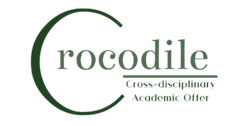Economic Policy
- COURSE SCENARIO

- Class 1 – Economic Policy Concepts

- Class 2 – The Interdependence, Spillovers, and Coordination in Economic Policy

- Class 3 – Fiscal Policy

- Class 4 – Monetary Policy

- Class 5 – Policy Mix

- Class 6 – Financial Stability

- Class 7 – Macroprudential Policy

- Class 8 – Capital Mobility and Exchange Rate Regime

- Class 9 – Foreign Exchange Policy

- Class 10 – The Mundell-Fleming Model

- Class 11 – Foreign Trade Policy

- Class 12 – Incomes Policy

- Class 13 – Structural and Growth Policies

- Class 14 – The Economic Governance in the EU

- Class 15 – The EU Common Policies

Environmental Transformation: Nature in the city or City in nature
- COURSE DESCRIPTION
- Class 1 – City as a permanent human settlement: history, functions and importance

- Class 2 – The challenges facing modern cities

- Class 3 – Nature in the city or City in nature

- Class 4 – Urban Planning

- Class 5 – Urban Nature and Ecosystem Services: Embracing Nature in the Cityscape

- Class 6 – Green Cities

- Class 7 – Promoting Biodiversity in Urban Areas: Urban Protected Areas

- Class 8 – Urban nature and human health

- Class 9 – Sustainable Urban Living: Integrating Nature into Daily Life – I. Urban Gardening

- Class 10 – Sustainable Urban Living: Integrating Nature into Daily Life – II. Urban Beekeeping

- Class 11 – Nature-Based Recreation: Nurturing Health and Well-being in Urban Residents – I. Forest Bathing

- Class 12 – Nature-Based Recreation: Nurturing Health and Well-being in Urban Residents – II. Pop-Up Parks

- Class 13 – Urban Biodiversity: Unveiling the Hidden Gems in Our Cities – I. Birds in the city

- Class 14 – Urban Biodiversity: Unveiling the Hidden Gems in Our Cities – II. Parks-Museums and Botanical Gardens

- Class 15 – Green Spaces as Community Catalysts: Engaging Urban Residents in Urban Nature

Media Literacy in the Digital Age
- COURSE DESCRIPTION

- Class 1 – The Social Transformation at the Turn of the Century: The Postindustrial Society and Media Literacy

- Class 2 – The New Media in the Digital World of Today

- Class 3 – Development of the concept of “media literacy”

- Class 4 – Media Literacy and its Components

- Class 5 – Media Literacy vs Information/Digital Literacy

- Class 6 – Assessment of media influence

- Class 7 – Media effects and media literacy

- Class 8 – Becoming media literate

- Class 9 – Media pedagogy and media literacy

- Class 10 – Media Literacy as part of the twenty-first century skills

- Class 11 – Media literacy and the safe use of digital media: Social media and fake news

- Class 12 – Media literacy and the safe use of digital media: Cyberbullying

- Class 13 – Media literacy and the safe use of digital media: Online relationships and sexuality

- Class 14 – Media literacy and the safe use of digital media: Gaming

- Class 15 – Media literacy and the safe use of digital media: Digital Identity

